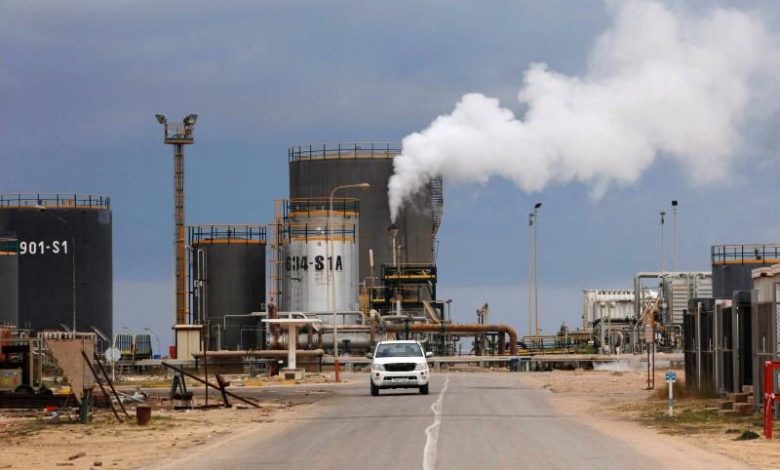The Libyan parliament seeks to protect oil revenues from political exploitation

The Libyan House of Representatives unanimously approved on Monday a draft resolution on “not compromising sovereign wealth” and the formation of a committee to amend the laws of distribution of wealth and oil revenues in the country, according to the outcome of the session of the House in Benghazi (east), according to a statement by council spokesman Abdullah Bliheg.
Observers on the Libyan scene believe that the vote is directed mainly against the policies of the government of national unity led by Abdul Hamid Dbeibeh, which uses oil revenues to support its stay in power by buying loyalty at home or to win the support of neighboring countries or Western countries by playing the oil card.
“The passage of the resolution is also directed against countries seeking to dominate Libya’s oil capabilities by supporting political forces in the west, namely the unity government, which signed a memorandum of understanding with Ankara on oil and gas last year.”
“Lawmakers discussed the fair distribution of wealth and oil revenues, their use in development, and prevention of their use for political purposes,” Bliheg said.
They also discussed “drafting legal amendments, whereby a majority was voted on, and the task of forming the committee would be entrusted to the council presidency,” according to the statement.
The statement did not say how many voted in favor of the resolution, saying only that it was “unanimously voted”.
According to the statement, “The committee is composed of the respective sovereign posts of the two sides (the governments of eastern and western Libya), specialized experts, MPs from the Finance and Energy Committee, and the monitoring committee, with three MPs from each committee, taking into account geographical representation.”
“A majority of parliament members voted on a draft resolution on the inviolability of sovereign wealth,” he said.
During the same session, Issa al-Oraibi, chairman of parliament’s energy committee, called on the parliament to “issue a decision to stop oil exports until there is a fair distribution of wealth among all areas of Libya”.
The MP accused the Dbeibeh family and the governor of the Central Bank of “controlling the Libyan wealth,” adding that ” between 50 and 70 million dollars are given to the neighboring countries (he did not name it).”
Richard Norland, the U.S. special envoy to Libya, said Wednesday that “increasing Libya’s oil revenues is a shared interest in reaching an agreement that ensures that state funds are used transparently and fairly.”
The United Nations is sponsoring an intra-Libyan economic dialog to unify divided economic institutions and create a plan for equitable distribution of the oil revenues the country is wholly dependent on.
In his briefing to the UN Security Council on February 27, UN Secretary-General’s Envoy to Libya Abdoulaye Bathily said, “The management of the country’s resources is a matter of great concern to all Libyans.”
He stressed “the need to address the use of Libya’s resources and the need to put in place a mechanism owned by Libyans to ensure that oil revenues are managed in a transparent and fair manner.”
The issue of equitable distribution of oil revenues is one of the most important crises in Libya, where a government appointed by the House of Representatives early last year is struggling with the unity government to control oil revenues that were frozen at the Foreign Bank of Libya months ago.












